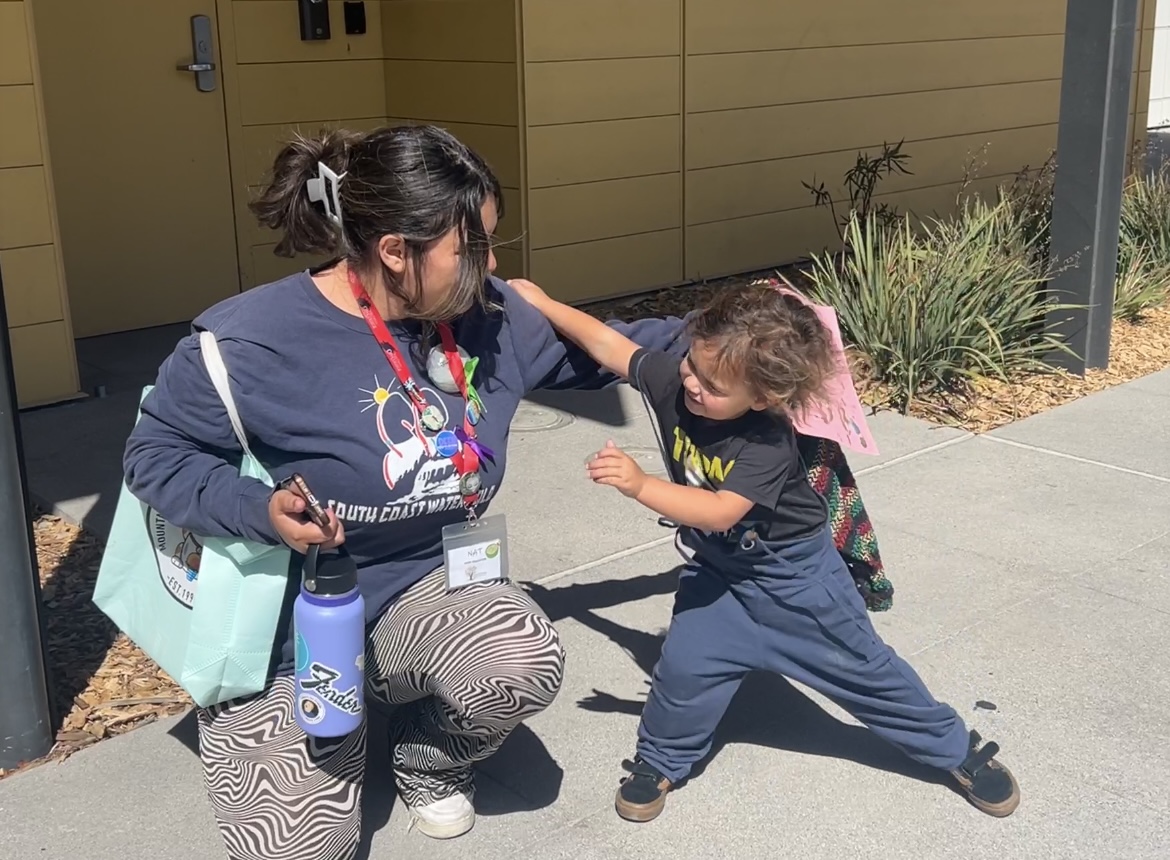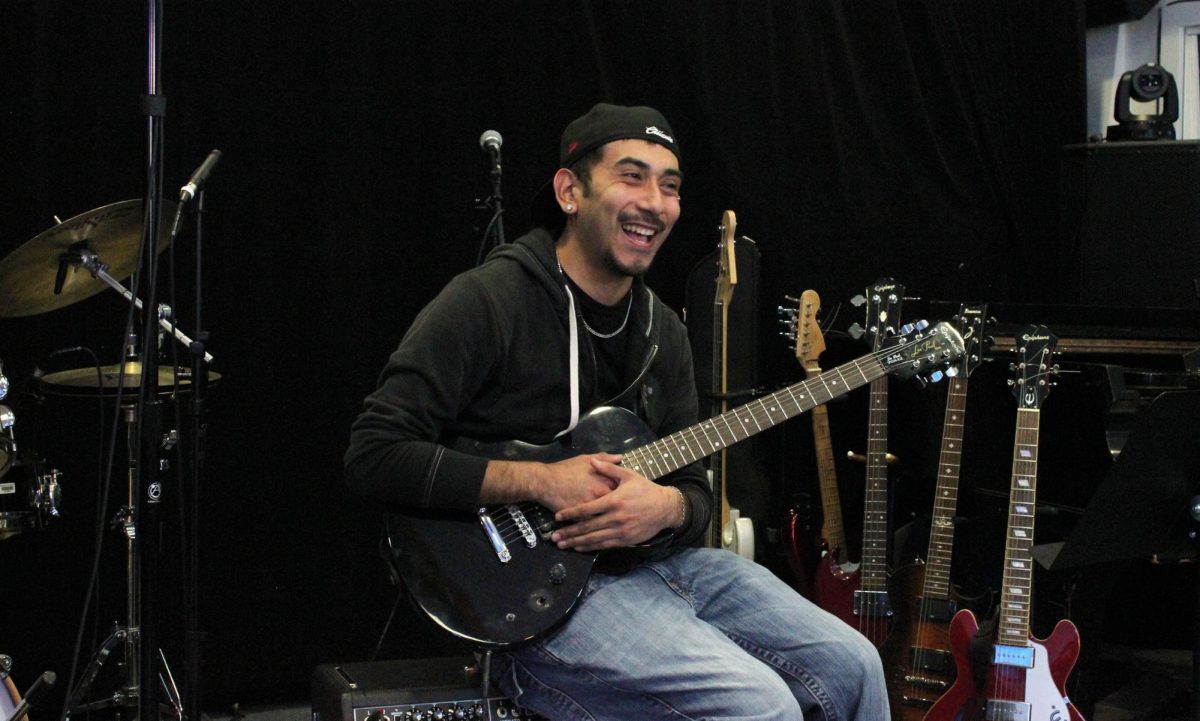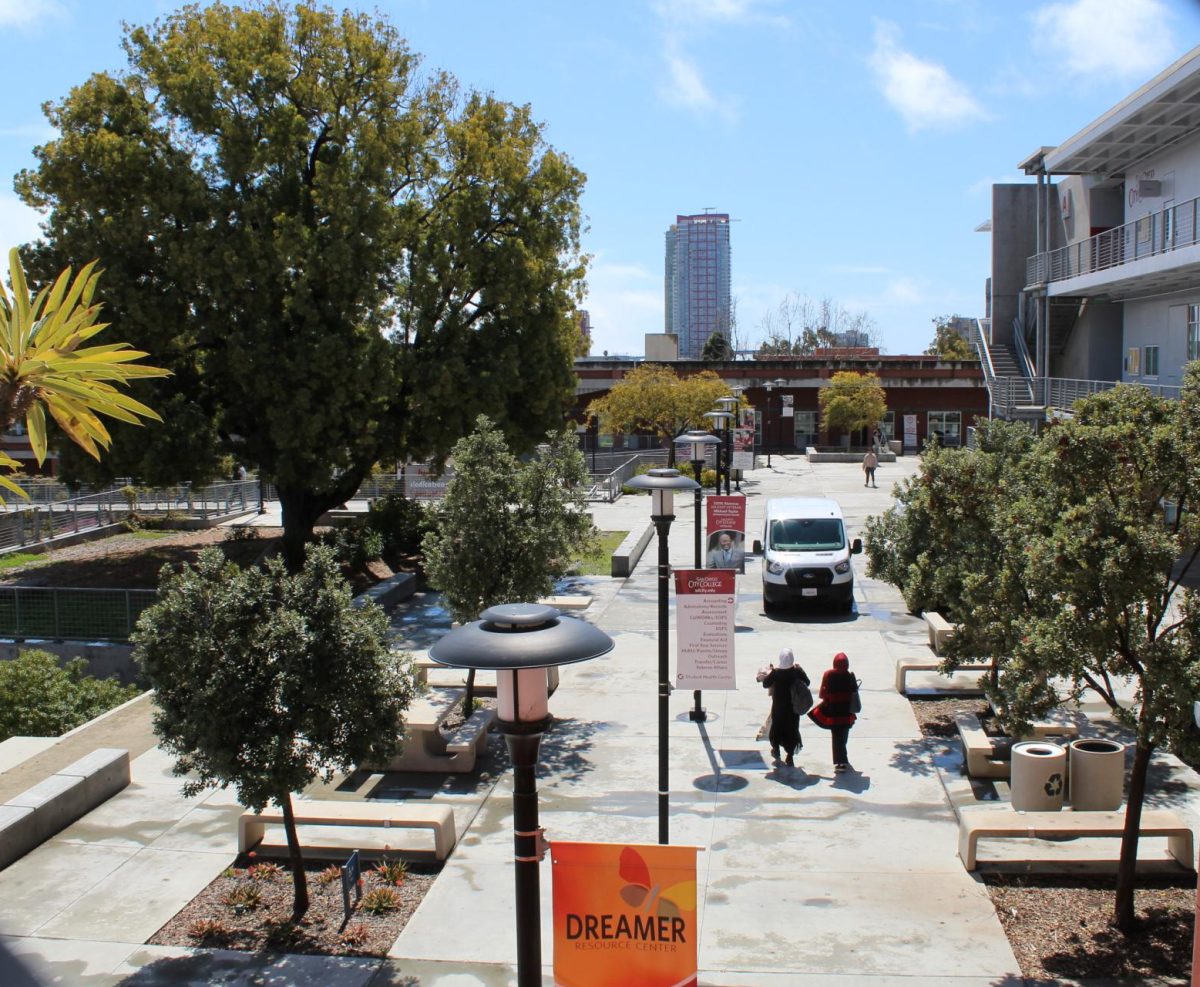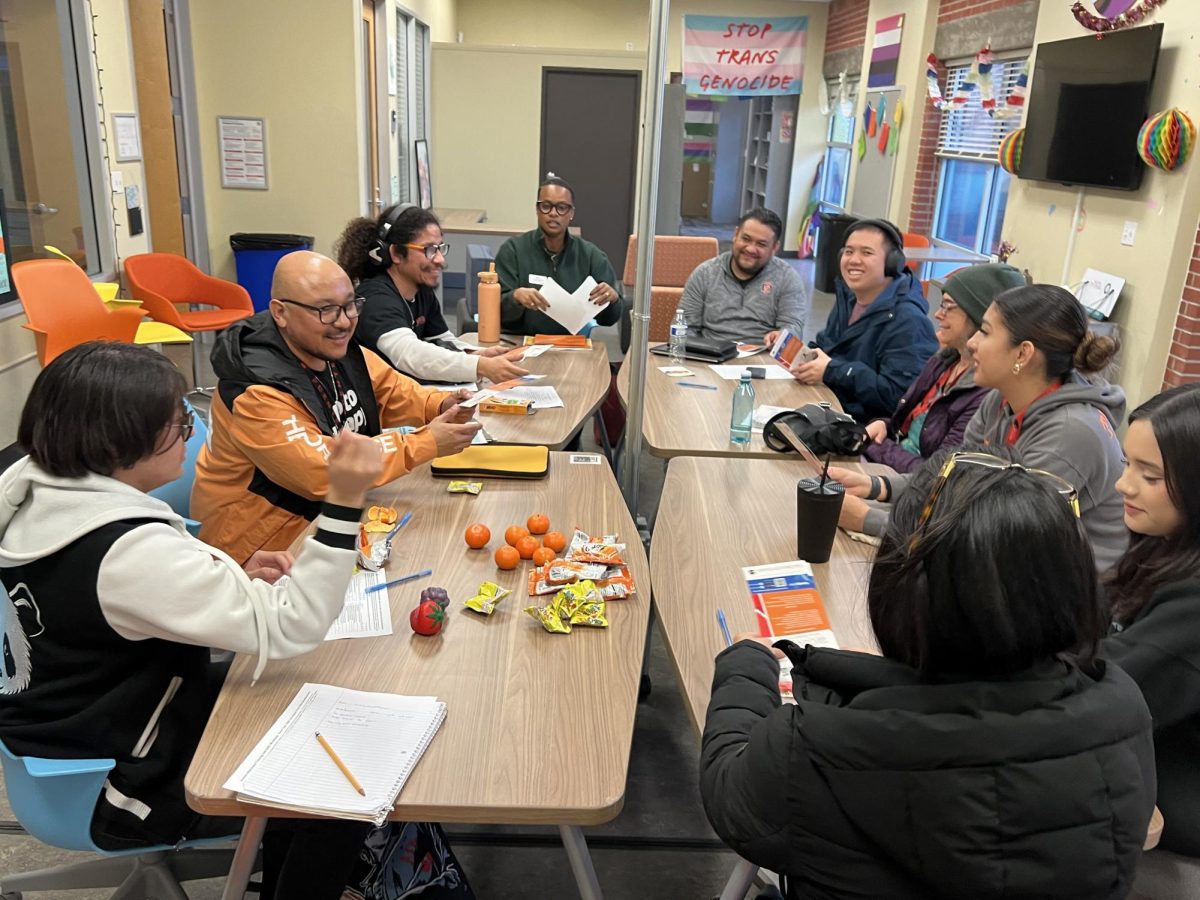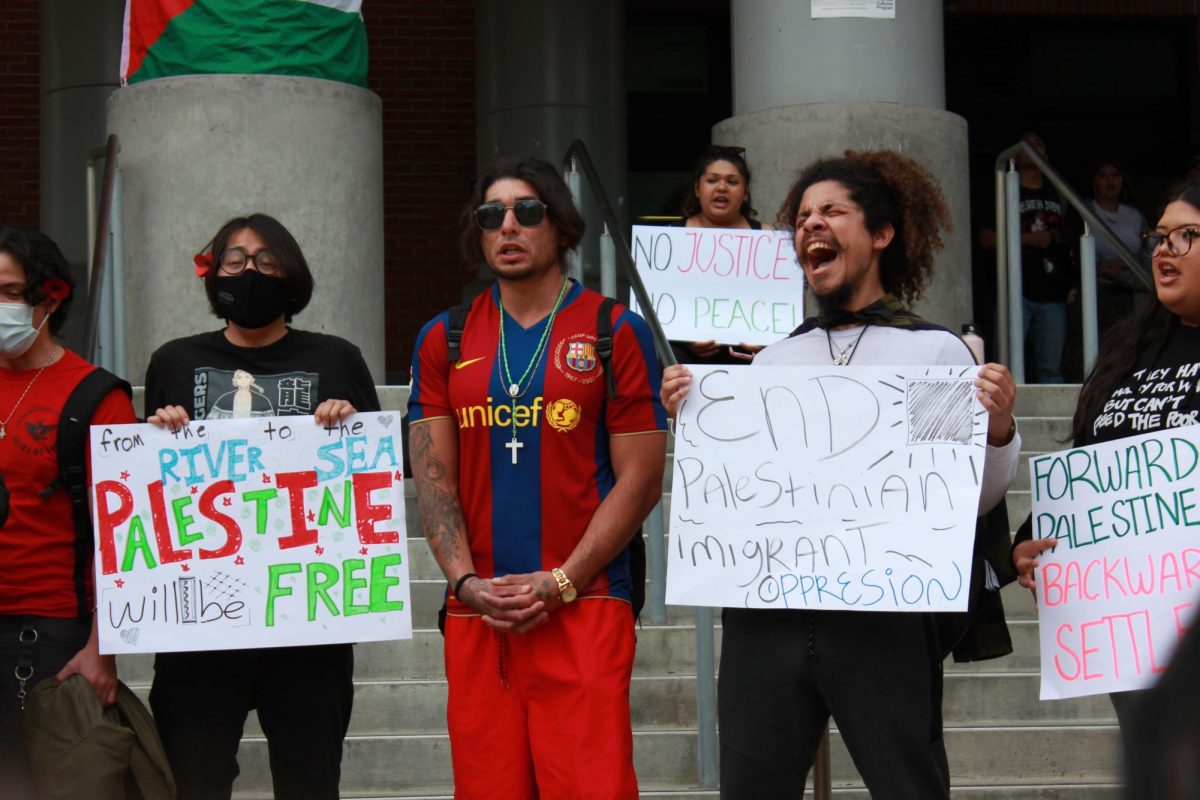Students who had their blood tested by a mobile HIV-testing clinic on World Aids Awareness Day Dec. 1 in the Gorton Quad had to endure no more than twenty minutes of having the inside of their mouth swabbed to test for antibodies to HIV.
This scraping of the gums is the preliminary test that determines the presence of antibodies to HIV. This can appear as early as two weeks or as late as 12 weeks.
“Turnout’s been pretty good,” said Paula Potter, RN, the coordinator of The Early Test Program. This program is a federally-funded program that includes a mobile clinic that administers free HIV tests, around the county.
“We’ll have 25 or thirty by the end of the day,” Potter said. “The most we do is 35 [in one day].”
Potter says the National Institute of Health grants them about a million dollars a year in operations. The Early Test Program is under the auspices of the UCSD Antiviral Research Center, a clinic which specializes in “viral load” testing.
Those who were tested were asked to fill out a questionnaire. And Potter says that many of them were high-risk candidates.
“We have relatively high-risk behavior for becoming infected,” said Potter, who mentioned that online social networking sites such as Myspace and Facebook have increased the chances of unprotected sexual contact.
Matt Weissman, a pre-med biochemist major at UCSD assisting with testing, said that AIDS no longer inspires the same dread in today’s generation as it did to the generation who came of age in the 1980s and 1990s.
“Many young people today feel it’s not a death sentence,” Weissman said. “They feel they can continue to have fun and have sex, and if they catch HIV, they feel they can just take a pill [as if AIDS] were the common cold.”
Not inspiring fear is the reason why so many individuals prefer to have sex without the “protection” of condoms.
“For some, condom use is a matter of preference,” said Denice Williams, a community-health representative who was helping the mobile clinic. “Some folks just prefer ‘barebacking’.”
If an individual tests positive in the preliminary test involving swabbing inside the mouth, they are asked to come into the UCSD Antiviral Research Center to take additional confirmatory tests.
If the confirmatory tests turn out positive, then the patient is counseled, and, if the patient wants it, he or she could have her or his case managed, and given guidance as to which federally-funded medicine-dispensing programs they may qualify for.
Potter said “the main goal is to keep the patient from progressing to AIDS.”


